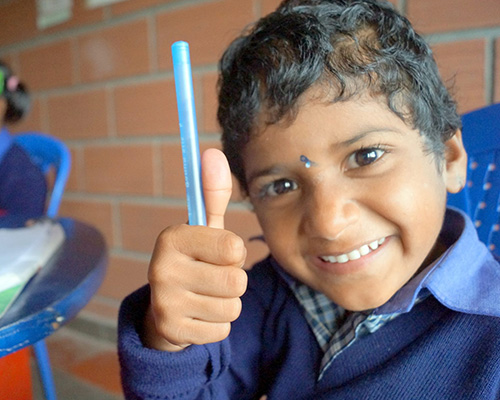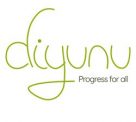Diyunu has partnered with organizations to create some of the most interesting and innovative technologies to help under-served populations and improve progress for all, and expand on the work our founder started at TechBridgeWorld at Carnegie Mellon Univerity.
Smart traffic signals for people with disabilities
Diyunu is working with the Robotics Institute at Carnegie Mellon University on a two-year project to create smart traffic signals to assist pedestrians with disabilities. Data from a person's smartphone will help the signal determine how much time they need to cross the intersection and adjust accordingly.
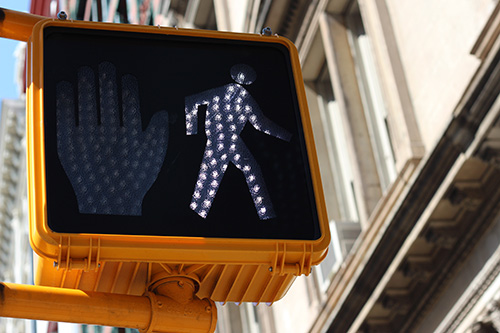
Braille tutors
Despite the importance of literacy to employment, social well-being, and health, the literacy rate of visually impaired people in developing communities is estimated to be very low. There are many factors that contribute to this illiteracy including difficulties using the traditional tool for writing braille (the slate and stylus) and the high cost of alternative braille writing tools. In response to this observed need for enhancing literacy for the blind in underserved communities, the TechBridgeWorld research group at Carnegie Mellon University developed the Braille Writing Tutor, an automated tutor with audio feedback that can provide guided practice to learn and practice writing braille using the slate and stylus method.
TechCaFE
TechCaFE (Technology for Customizable and Fun Education) provides educators with simple and customizable tools to make learning fun for students. In partnership with CMU's TechBridgeWorld, the TechCaFE project created a suite of culturally and socially relevant computer and mobile phone based tools for enhancing English literacy skills among children and adults. These tools included a web-accessible tool for teachers to create customized content for students, a web-based practice tool for students that allowed practicing drills via games that embedded assignments from their teachers, and a platform for developers to create applications that incorporate teacher content within the context of games designed with the specific user populations in mind.
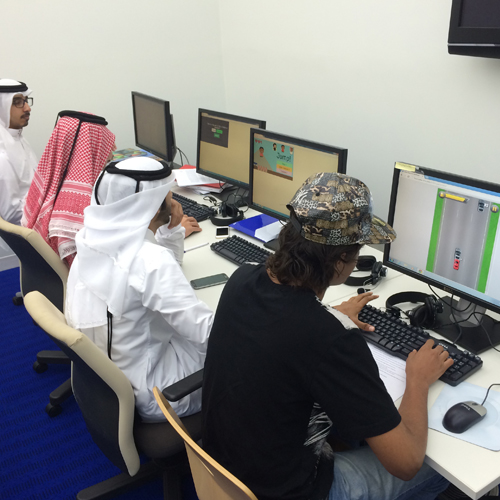
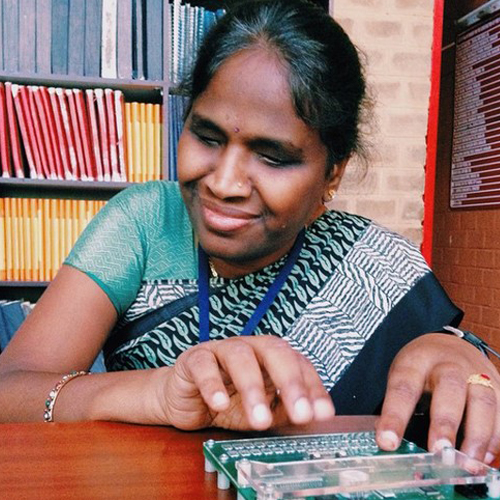
Compassionate engineering
The TechBridgeWorld research group at Carnegie Mellon University developed the “Compassionate Engineering” process that builds partnerships with disempowered communities by establishing mutual respect and trust. These communities include people with disabilities, and economically disadvantaged people, especially in the developing world. The process requires investing a great deal of time and effort to understand a community’s needs and forging working relationships with individuals, groups, and organizations within these communities. This approach trains engineers and technologists to develop compassion, dedication, and the ability to work across cultural and other barriers. The ultimate goal of this approach is to realize each community’s vision of development and actualize it by inventing and customizing relevant and accessible technology tools.
Robotic aids for blind travelers
Smart cities should be truly accessible and navigable for everyone, including people with disabilities. Although traveling safely and independently is a critical requirement for modern life, visually impaired people often find navigating unfamiliar urban environments challenging and sometimes daunting. Carnegie Mellon University's NSF funded "Assistive Robots for Blind Travelers" project explores robotics solutions that can assist visually impaired people with urban navigation in smart cities of the future. This research project specifically explores accessible interfaces, assistive Interaction between humans and robots, and effective cooperation to accommodate a variety of teaming options including human-robot teams.

iSTEP
iSTEP (innovative Student Technology ExPerience) is a unique internship program that provided Carnegie Mellon University students with the opportunity to conduct technology research projects in developing communities. Started in 2009 by the TechBridgeWorld research group, iSTEP was a rigorous and competitive 10-week internship program that required the involvement of students with high levels of dedication, team work, cross-cultural adaptability, initiative and academic achievement. Student teams contributed to technology solutions that benefited underserved communities in Tanzania, Bangladesh, India, Uruguay, and Ghana over the seven years during which this internship was offered.
Mathru Educational Trust for the Blind website
The Mathru Educational Trust for the Blind in Bangalore, India has been a key partner to Diyunu. We were pleased to help Mathru revamp its website as a pro bono project as part of our ongoing relationship with the school.
